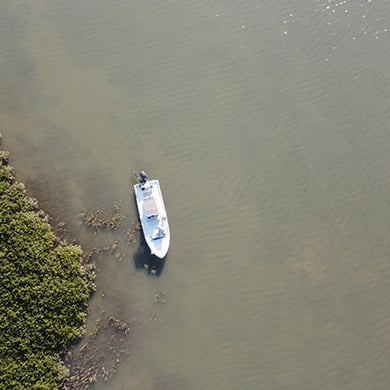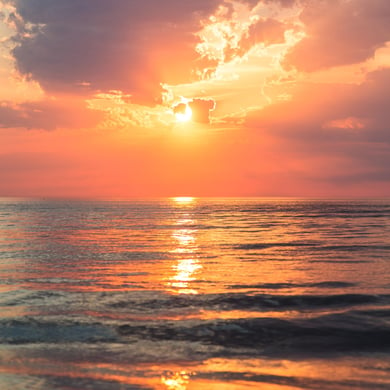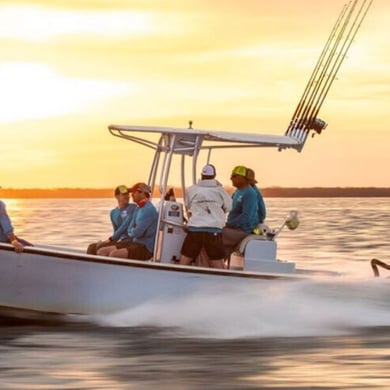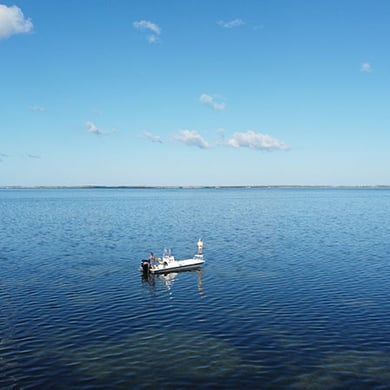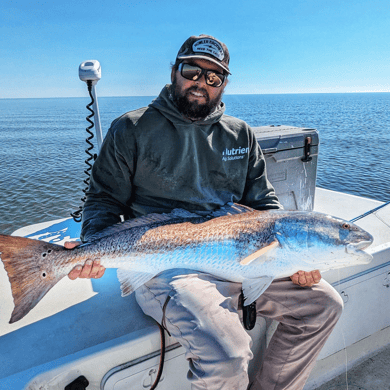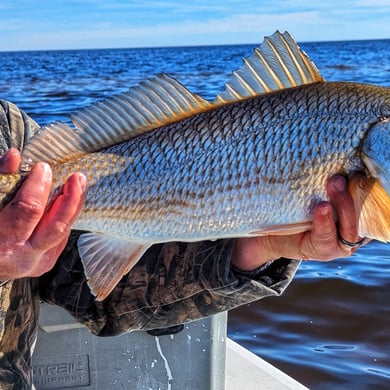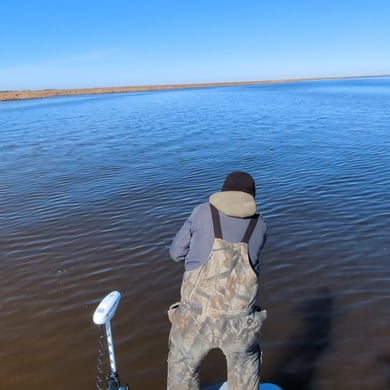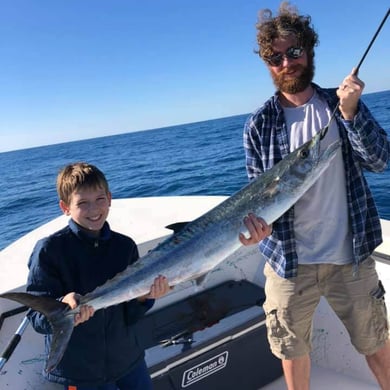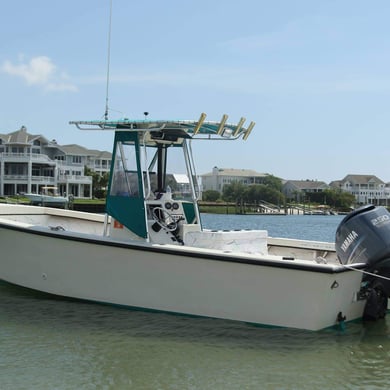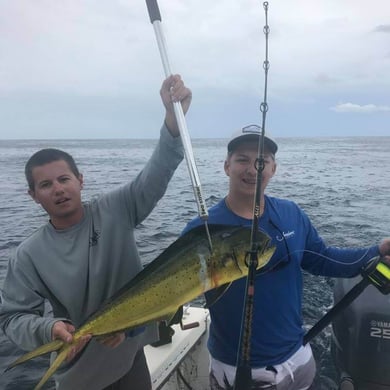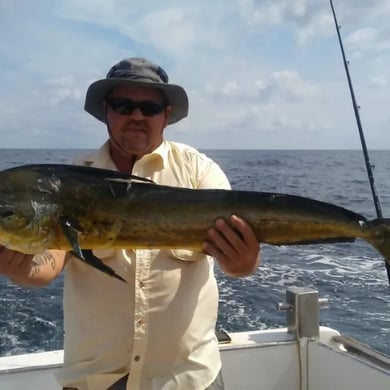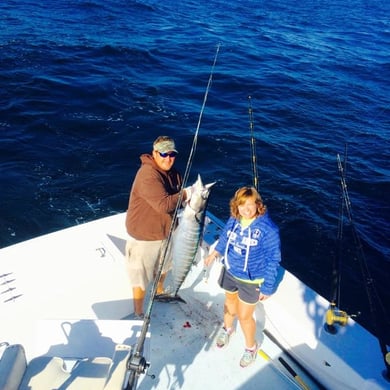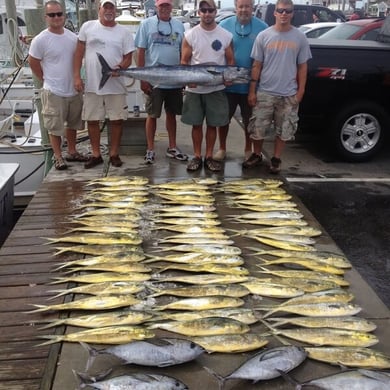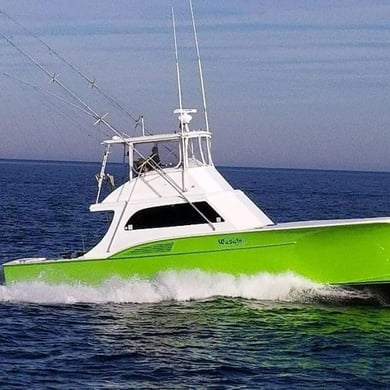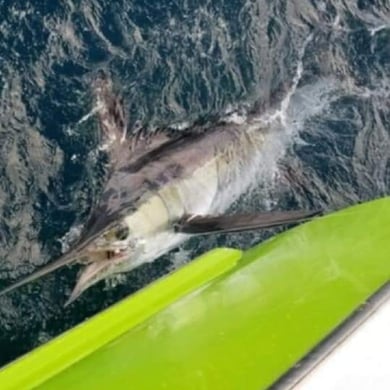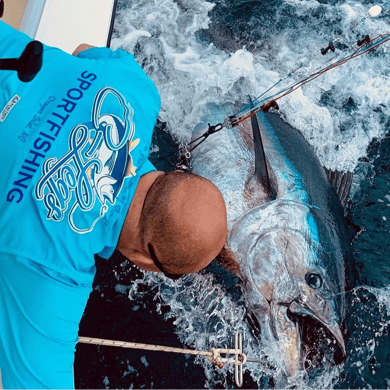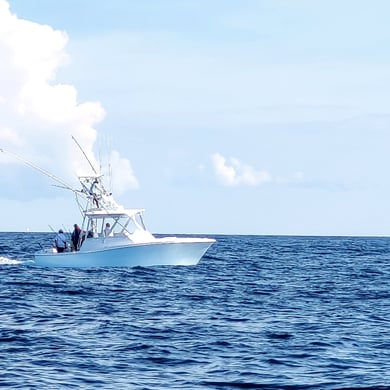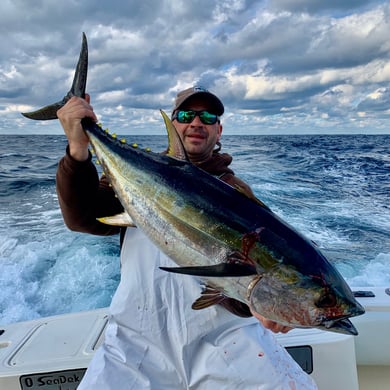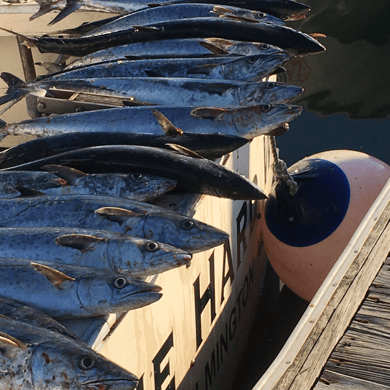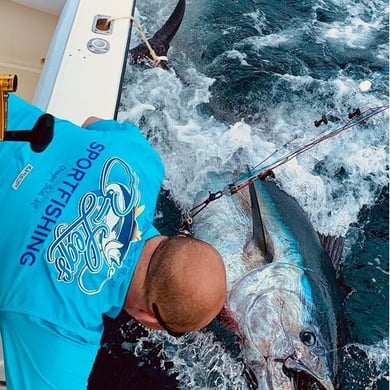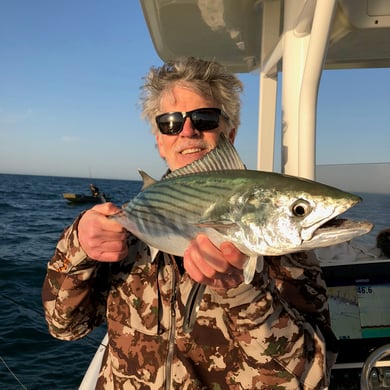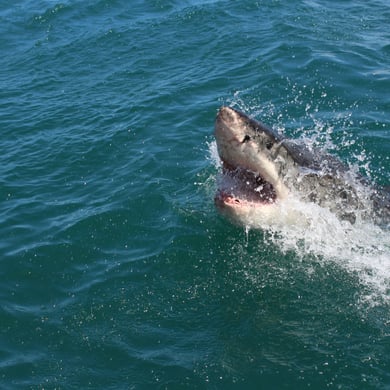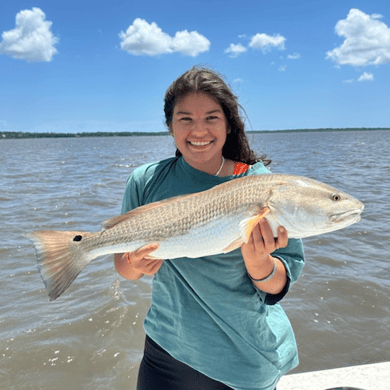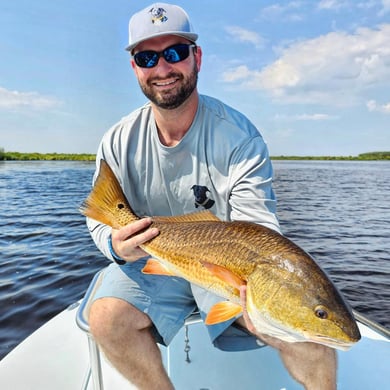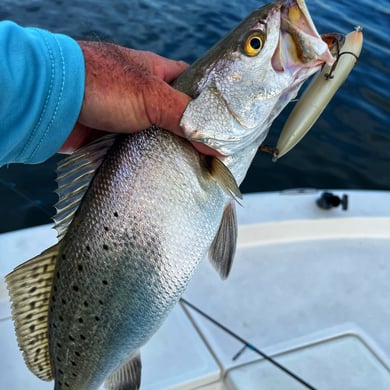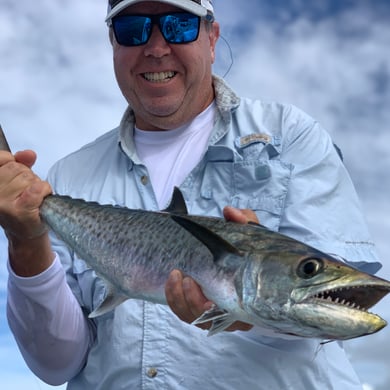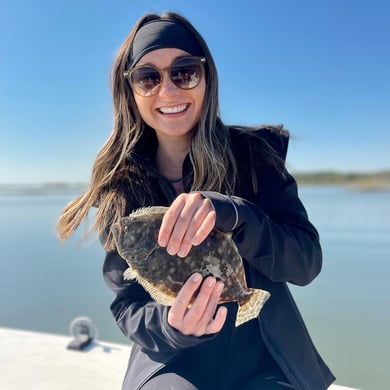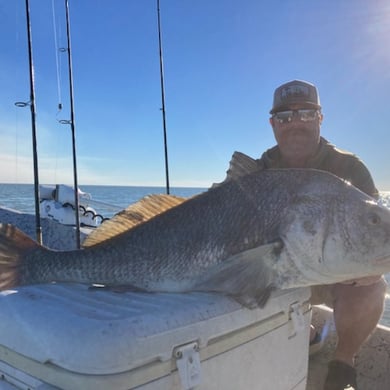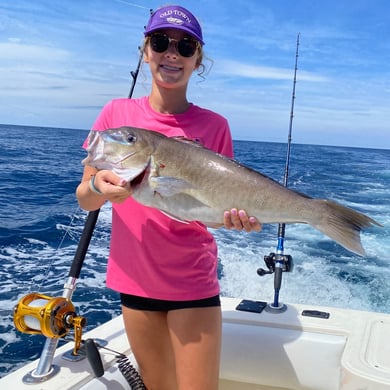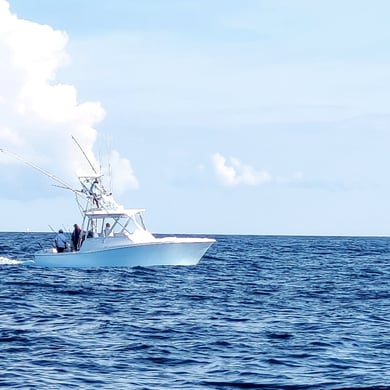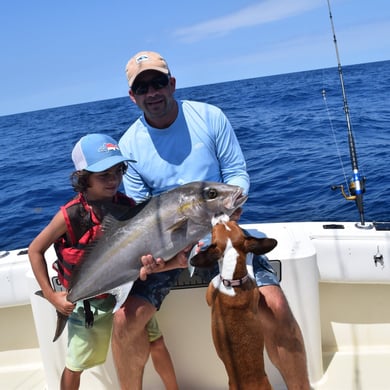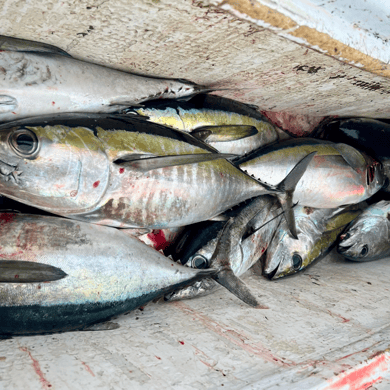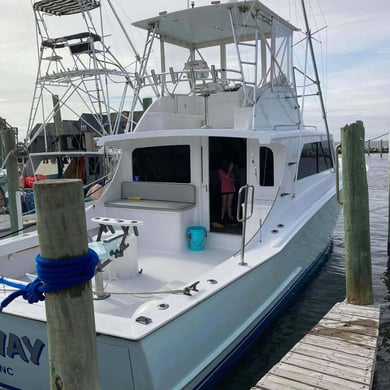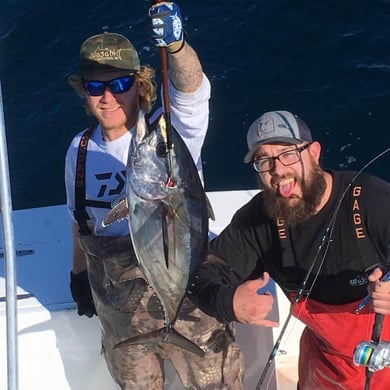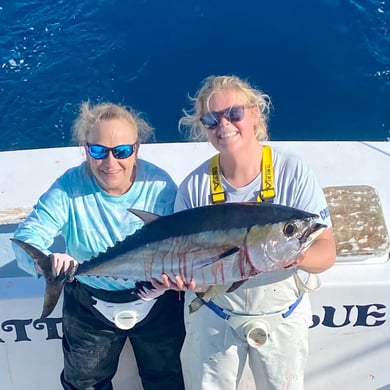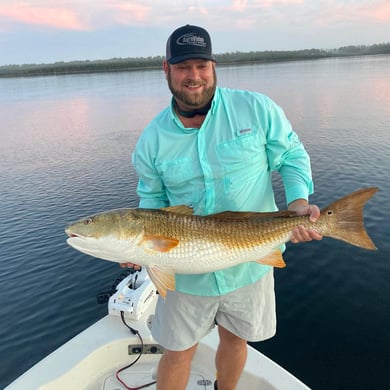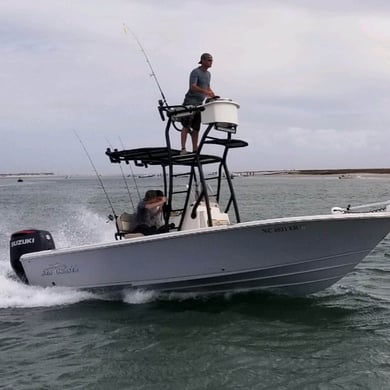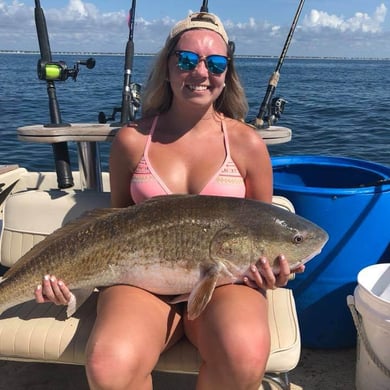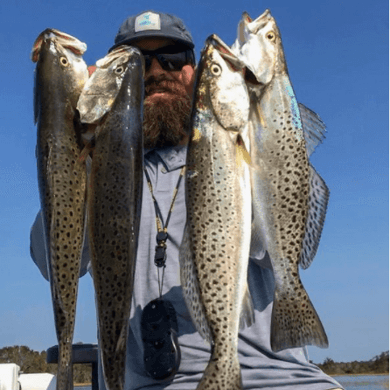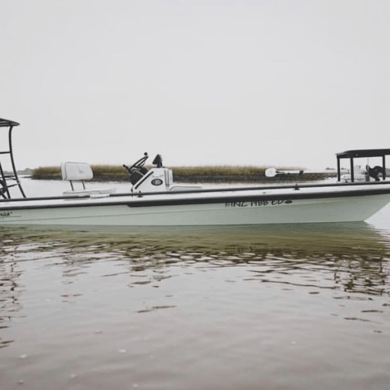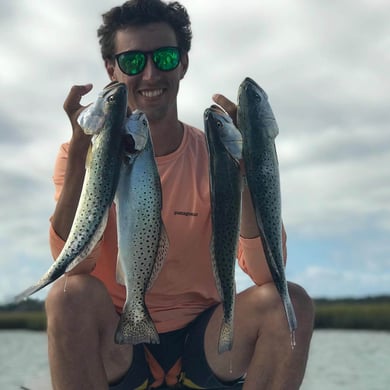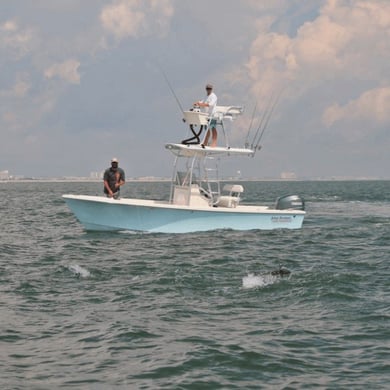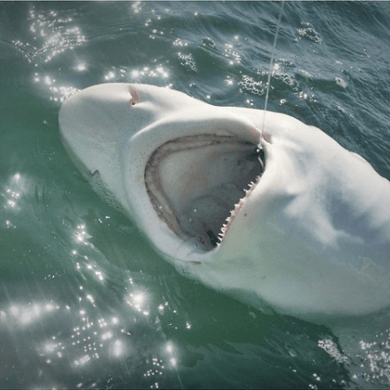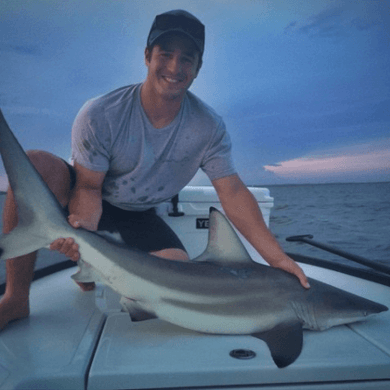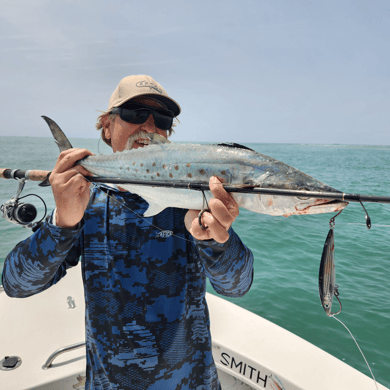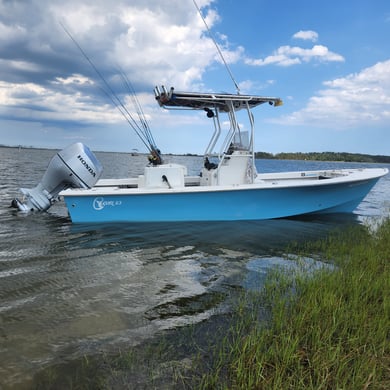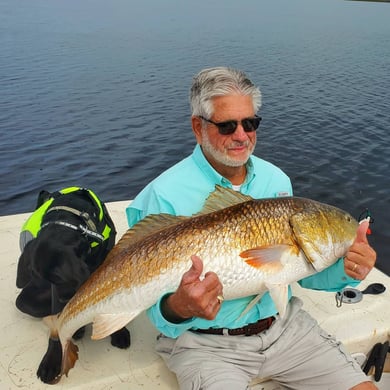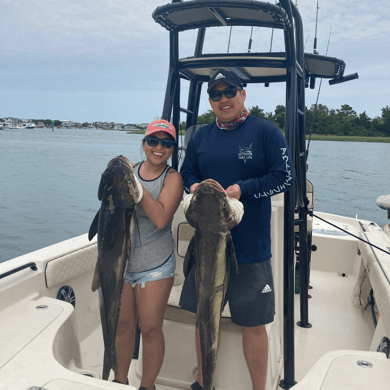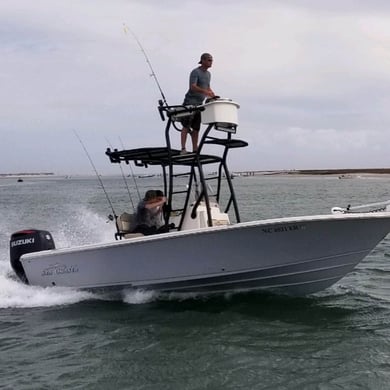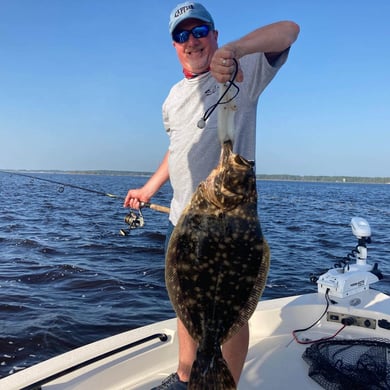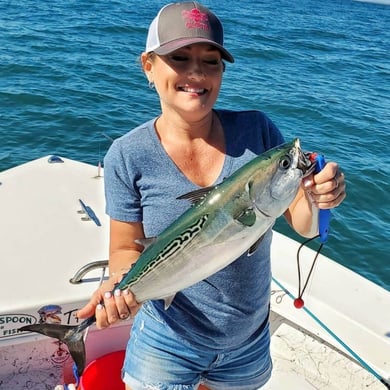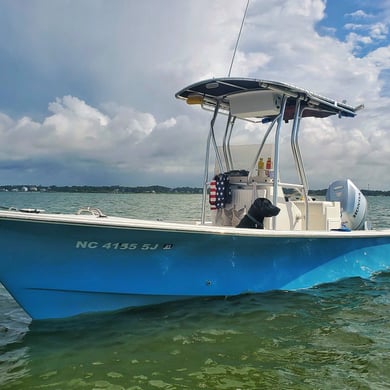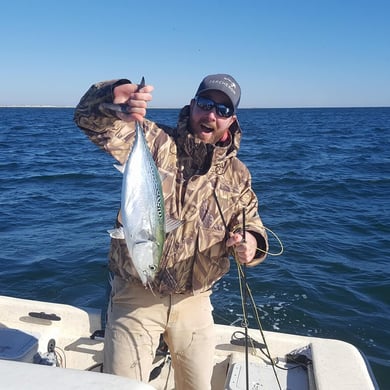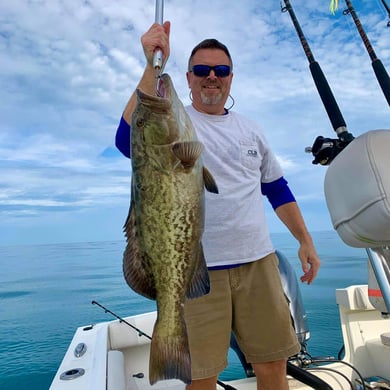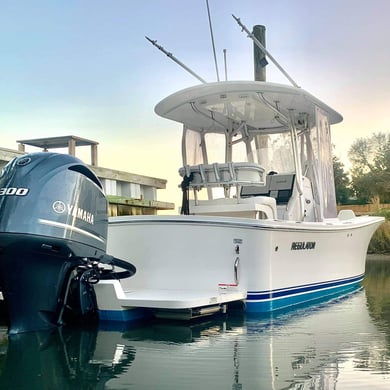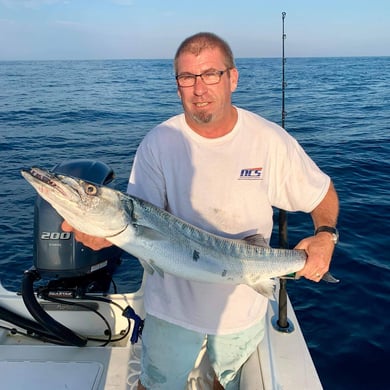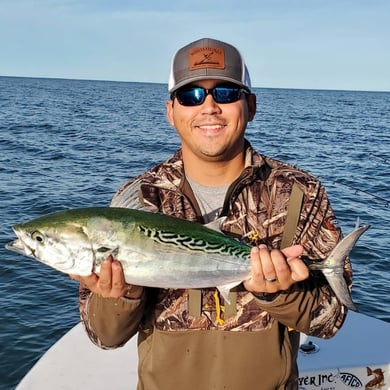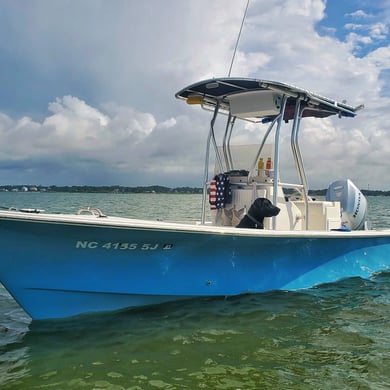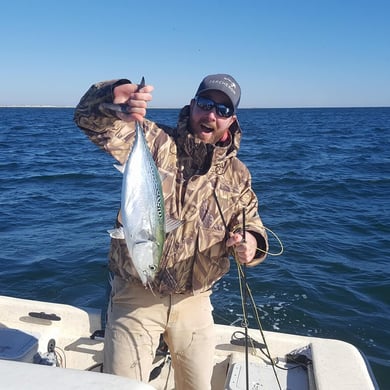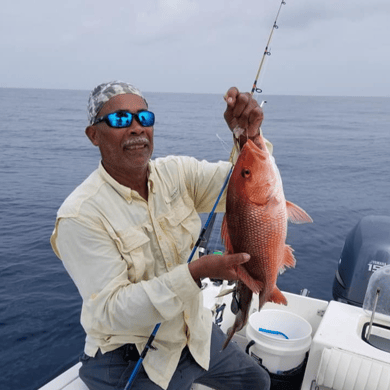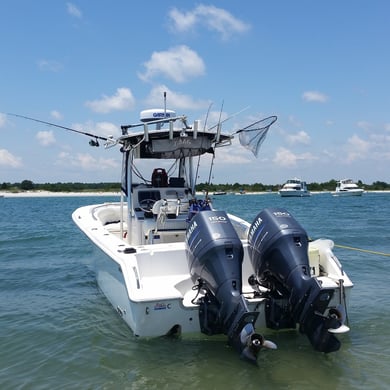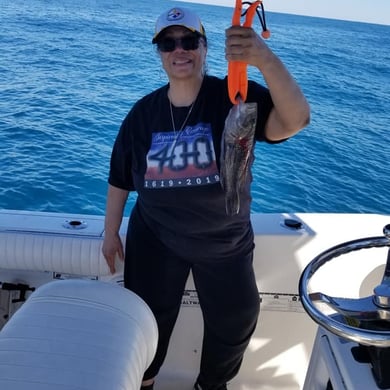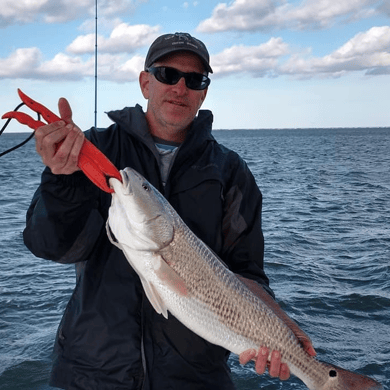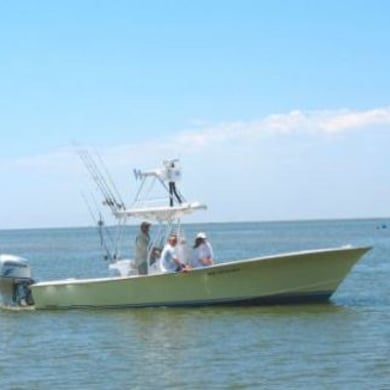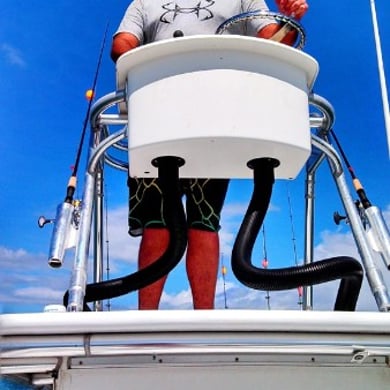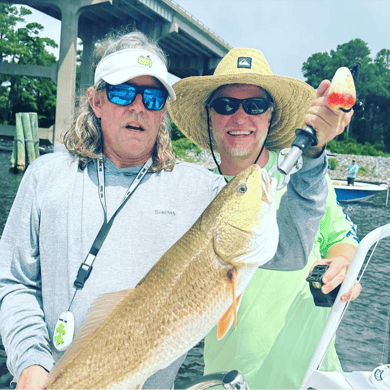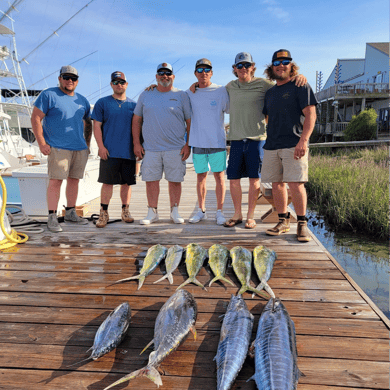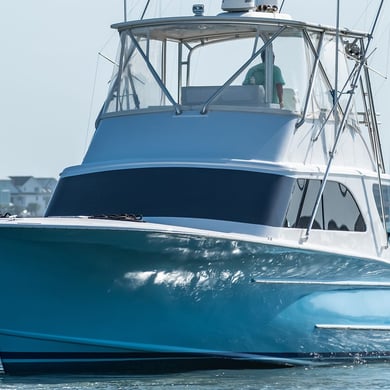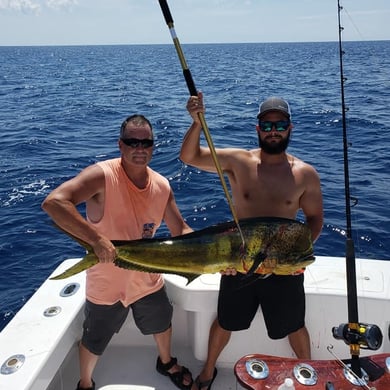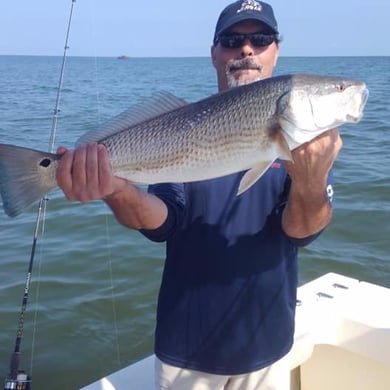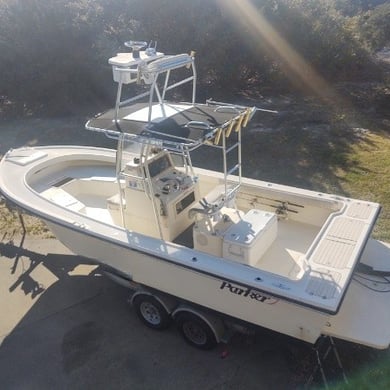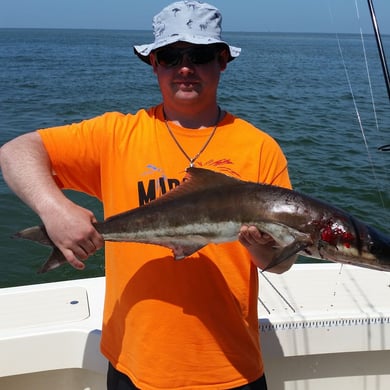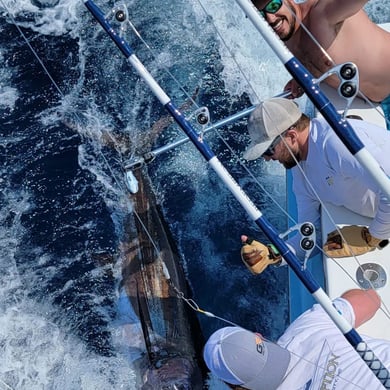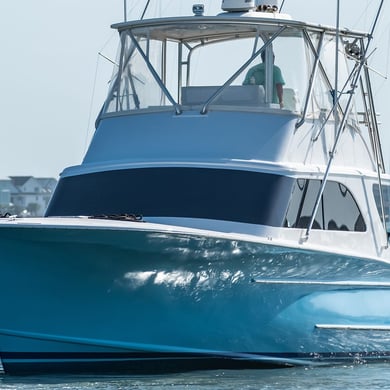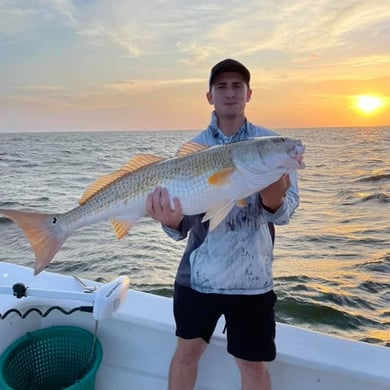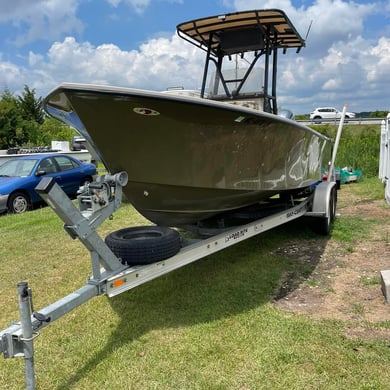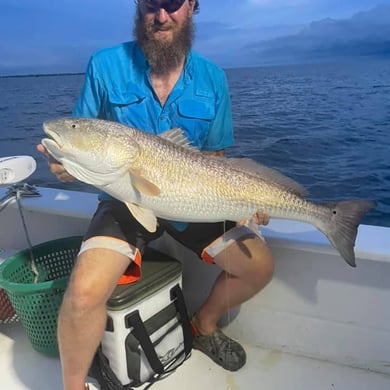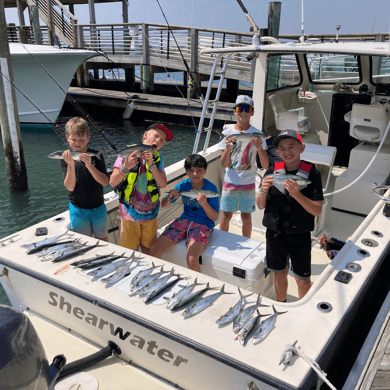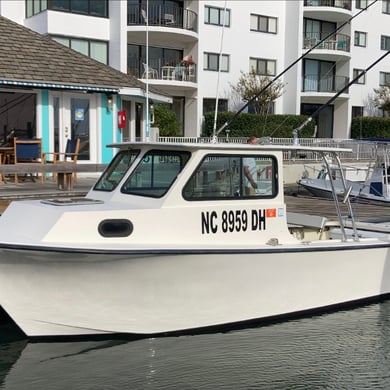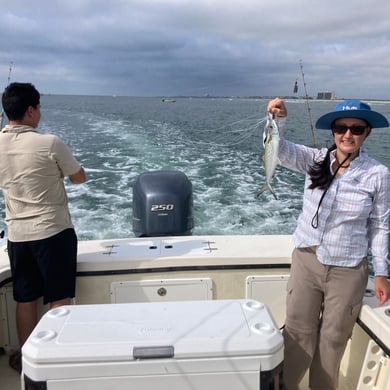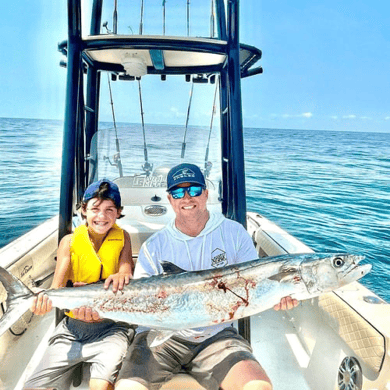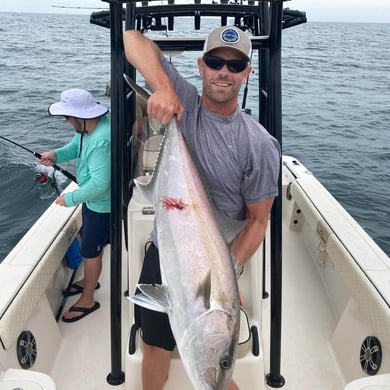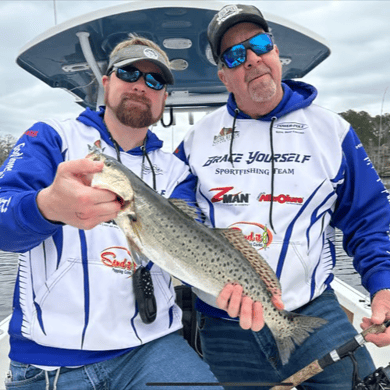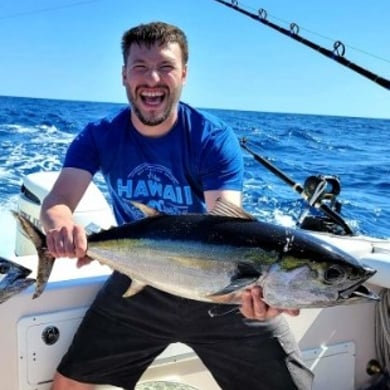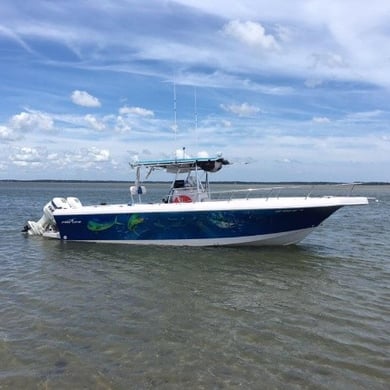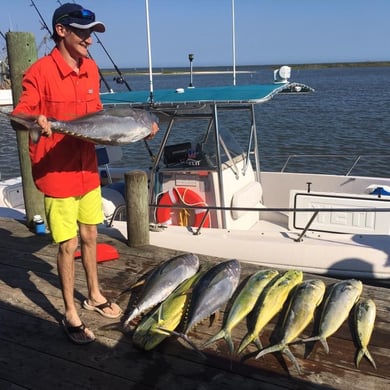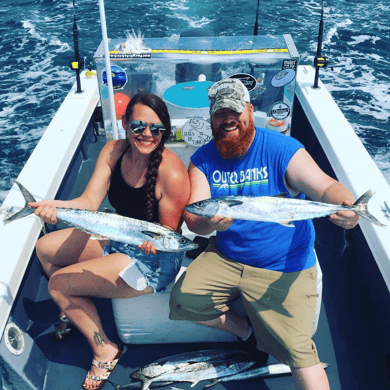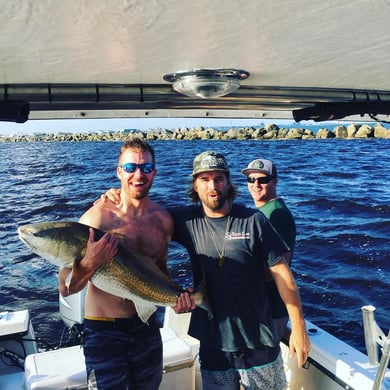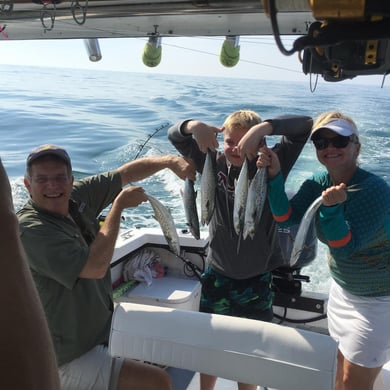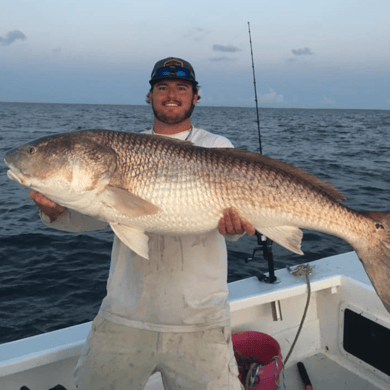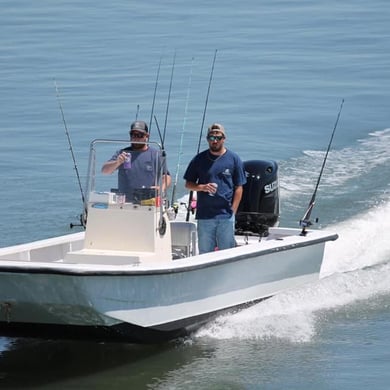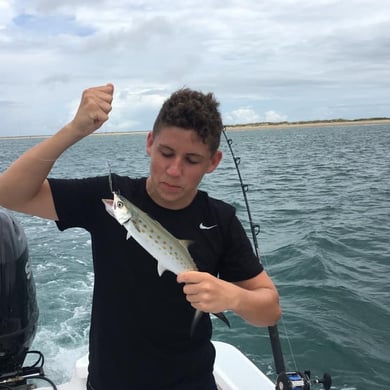Damn Good Guides
Experts Available 24/7
100% Weather Guarantee
Top Types of Trips in North Carolina
Recently Booked Fishing Charters In North Carolina
Deep Sea, Nearshore Fishing in Wrightsville Beach
Fishing Special - 26’ C-Hawk
Inshore, Nearshore Fishing in Morehead City
Fish On The Historic JAWS Boat
Top Cities in North Carolina
Top Species for Fishing in North Carolina
“Our Damn Good Guides go above and beyond, and we’ve handpicked every single one. We’re passionate about the outdoors and look forward to getting you out on the trip of a lifetime, every time.”
Jonathan and Attison | Co-founders | Austin, Texas
Deep Sea Fishing Charters In North Carolina
Deep Sea, Nearshore Fishing in Wrightsville Beach
Fishing Special - 26’ C-Hawk
Inshore Fishing Charters In North Carolina
Inshore, Nearshore, Jetty in Harkers Island
NC Classic Inshore Fishing Trip
Nearshore Fishing Charters In North Carolina
Deep Sea, Nearshore Fishing in Wrightsville Beach
Fishing Special - 26’ C-Hawk
Inshore, Nearshore, Jetty in Harkers Island
NC Classic Inshore Fishing Trip
More Fishing Charters In North Carolina
Deep Sea Fishing in Carolina Beach
Deep Sea Full Day & Extended Trips
Need a Place to Stay?
Everything to Know About Booking a Fishing Charter in North Carolina
What are the best fishing charters in North Carolina?
Why should I book a fishing charter in North Carolina with Captain Experiences?
What types of fishing charters are common in North Carolina?
How much do North Carolina fishing charters cost?
Is booking a fishing guide worth the money?
What month is best for fishing in North Carolina?
Do I need a North Carolina fishing license and what are the bag limits in North Carolina?
Recent Reviews
The Best Places to Fish in North Carolina
- Atlantic Beach, NC
- Beaufort, NC
- Carolina Beach, NC
- Cherokee, NC
- Emerald Isle, NC
- Frisco, NC
- Hampstead, NC
- Harkers Island, NC
- Hatteras, NC
- Leicester, NC
- Manteo, NC
- Morehead City, NC
- New Bern, NC
- North Topsail Beach, NC
- Ocean Isle Beach, NC
- Oriental, NC
- Sealevel, NC
- Sneads Ferry, NC
- Southport, NC
- Swan Quarter, NC
- Topsail Beach, NC
- Wanchese, NC
- Washington, NC
- Wilmington, NC
- Wrightsville Beach, NC
Top Targeted Fishing Species in North Carolina
- African Pompano
- Albacore Tuna
- Almaco Jack
- Amberjack
- Atlantic Mackerel
- Barracuda
- Bigeye Tuna
- Black Drum
- Black Grouper
- Black Seabass
- Blackfin Tuna
- Blacktip Shark
- Blue Marlin
- Bluefin Tuna
- Bluefish
- Bonito
- Bonnethead Shark
- Brook Trout
- Broomtail Grouper
- Brown Trout
- Bull Shark
- Clam
- Cobia
- False Albacore
- Flounder
- Gag Grouper
- Great White Shark
- Grunt
- Hammerhead Shark
- Jack Crevalle
- Kingfish
- Mahi Mahi
- Rainbow Trout
- Red Snapper
- Redfish
- Rockfish
- Sailfish
- Scamp Grouper
- Scup
- Sheepshead
- Snowy Grouper
- Spanish Mackerel
- Speckled Trout
- Striped Bass
- Swordfish
- Tarpon
- Tiger Shark
- Tilefish
- Triggerfish
- Vermillion Snapper
- Wahoo
- Weakfish
- White Marlin
- Whiting
- Yellowfin Tuna
Top Targeted Hunting Species in North Carolina
Top Fishing Techniques in North Carolina
- Artificial Lure Fishing
- Bottom Fishing
- Cut Bait Fishing
- Deep Dropping
- Drift Fishing
- Fly Fishing
- Heavy Tackle Fishing
- Jigging
- Kite Fishing
- Light Tackle Fishing
- Live Bait Fishing
- Sight Casting
- Topwater Fishing
- Trolling
- Wading
Top Hunting Techniques in North Carolina
- Calling
- Decoy Hunting
- Hunting from a Blind
- Shotgun Hunting
Featured Cities
- Fishing Charters Near Me
- Austin Fishing Guides
- Biloxi Fishing Charters
- Bradenton Fishing Charters
- Cabo San Lucas Fishing Charters
- Cancun Fishing Charters
- Cape Coral Fishing Charters
- Charleston Fishing Charters
- Clearwater Fishing Charters
- Corpus Christi Fishing Charters
- Dauphin Island Fishing Charters
- Daytona Beach Fishing Charters
- Destin Fishing Charters
- Fort Lauderdale Fishing Charters
- Fort Myers Fishing Charters
- Fort Walton Beach Fishing Charters
- Galveston Fishing Charters
- Gulf Shores Fishing Charters
- Hatteras Fishing Charters
- Hilton Head Fishing Charters
- Islamorada Fishing Charters
- Jacksonville Fishing Charters
- Jupiter Fishing Charters
- Key Largo Fishing Charters
- Key West Fishing Charters
- Kona Fishing Charters
- Madeira Beach Fishing Charters
- Marathon Fishing Charters
- Marco Island Fishing Charters
- Miami Fishing Charters
- Montauk Fishing Charters
- Morehead City Fishing Charters
- Naples Fishing Charters
- New Orleans Fishing Charters
- New Smyrna Beach Fishing Charters
- Orange Beach Fishing Charters
- Panama City Beach Fishing Charters
- Pensacola Fishing Charters
- Pompano Beach Fishing Charters
- Port Aransas Fishing Charters
- Rockport Fishing Charters
- San Diego Fishing Charters
- San Juan Fishing Charters
- Sarasota Fishing Charters
- South Padre Island Fishing Charters
- St. Petersburg Fishing Charters
- Tampa Fishing Charters
- Tarpon Springs Fishing Charters
- Venice Fishing Charters
- Virginia Beach Fishing Charters
How are fishing conditions in North Carolina?
View North Carolina Fishing Reports from our damn good guides.
Didn't Find What You Were Looking For?
Our guides are Damn Good Guides, which means they’re vetted by our team of outdoor experts who know them on a first-name basis. We hand pick each and every one of them, and our network spans all across the US and beyond.
The proof is in the pudding, and we’re incredibly proud of our 4.9 / 5 average review score. Hit the button below to see more trip options:

